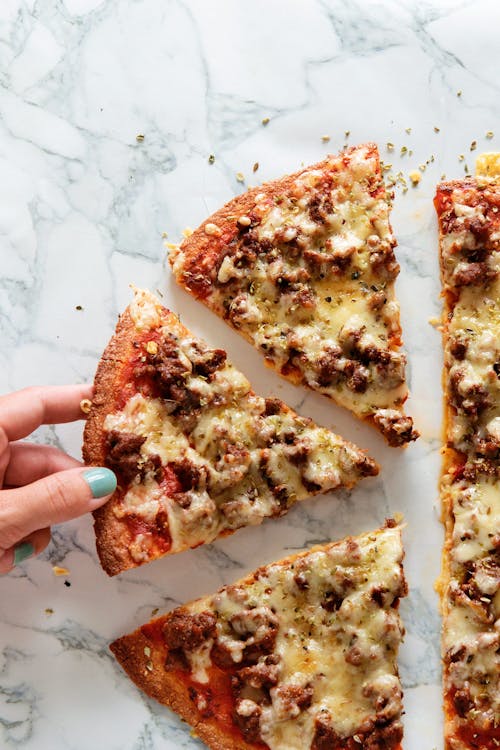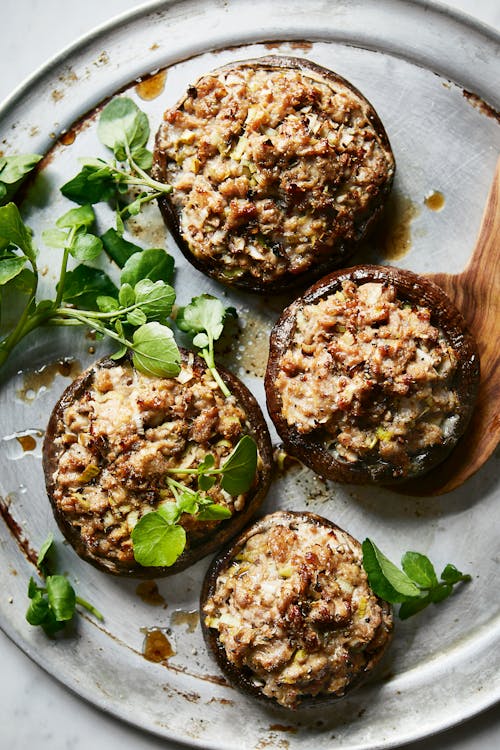Old habits die hard

Hi, Diet Doctor members and visitors!
Rokas here. As the newest addition to the Recipe Team at Diet Doctor, I was surprised, even nervous, when asked to introduce myself to you guys. After reading through inspiring, informative, and captivating stories of my colleagues and Diet Doctor success stories, I wasn’t sure if mine would resonate with you.
I have never struggled with extra pounds. And my blood sugar has never strayed from the ordinary.
However, I do know what it’s like to have to consume 5,000-6,000 calories a day for years and struggle to maintain weight. How exhausting it is to eat food loaded with empty calories and never feel satiated.
From the age of seven to 24, I spent most of my time doing something I loved the most — swimming. Competitive swimming at a high level comes with twice-a-day training sessions in the pool, weightlifting, swim meets, travel, and school. You’re always on the move and always hungry.
Having a busy schedule meant that every minute counted. Back then, and to an extent even today, my relationship with food could best be described as maximum calorie intake in minimum time. A rib-eye could be gone in 5 minutes and a large pizza in no more than 10. I wasn’t eating food; I was inhaling it.
While my unhealthy eating habits often left me feeling heavy and unwell, I did at least eat truly clean food. That’s because I was blessed to have grown up in Lithuania, where organic food wasn’t just a label on a package.
Everyone around us grew, cultivated, or produced something. Grandfather — apples and cherries; uncles — honey and game; aunt — mushrooms; neighbor — milk and cheese; grandmother — just about anything. We knew where most of our food came from, how it was produced, and whose hands it had gone through.
I realized how fortunate I was when I became a student-athlete at a university in the Southern United States. My new habit of eating ultra-fast, and thus overeating, came with a new set of issues.
The convenience, price, and availability of new and untried fast-food chains around my college campus did not bode well for me. I started having digestive issues and couldn’t gain weight (adding extra pounds on my lean frame had been recommended by my coach as soon as I stepped foot on campus).
The coming months and years were a huge adjustment for me. Despite all the temptations, I promised to stick to dining halls for breakfast, exclude certain food establishments from my routine, and cook my own meals at least four times a week.
It may sound minor, but with my schedule, it was grandiose. Success did not come quickly. While I was able to gain weight eventually, I often felt bloated and unwell after eating. My inability to pace myself while eating was the culprit.
It all came to a crashing halt once I stopped swimming competitively. In the months following, my caloric intake had to be adjusted substantially. I would race through my plate just like before, but the post-meal bloatedness was exacerbated to the point where I could barely stand up from the table. Eventually, meals I would devour in minutes just a couple of months ago were too much.
At first, this was inconceivable to me, but thousands of calories for a single meal just wasn’t an option anymore. My body had adjusted, and it was time for my eyes and mind to do the same. It took time, practice, even peer pressure to learn that taking 15 minutes to finish your meal should be the floor and not the ceiling.
The constant chase of practice and class to the expense of nutritious and timely meals had ended. But old habits die hard.
Tip 1: Eat local and grow your own. Do your best to understand food supply chains in your area and see if you can purchase directly from farmers. You don’t need much land to grow something yourself. Can’t decide which flowers would look best in your backyard? How about celery instead? Or some other low-carb vegetable?
Tip 2: Pace yourself at the table. Your stomach is a mini-brain. Allow it to compute how much and what type of food you’re consuming by chewing thoroughly and taking your time between bites. The feeling of satiation will come quicker, and you will have a better shot at preventing overeating.
Tip 3: Get into a sleep schedule. There’s nothing better than a good night’s sleep. Do yourself a favor and create a habit of sleeping and waking at similar hours. Turn your bedroom into a quiet place by limiting electronics and meditating before bed.
Rokas Cepulis, Recipe Team Assistant





